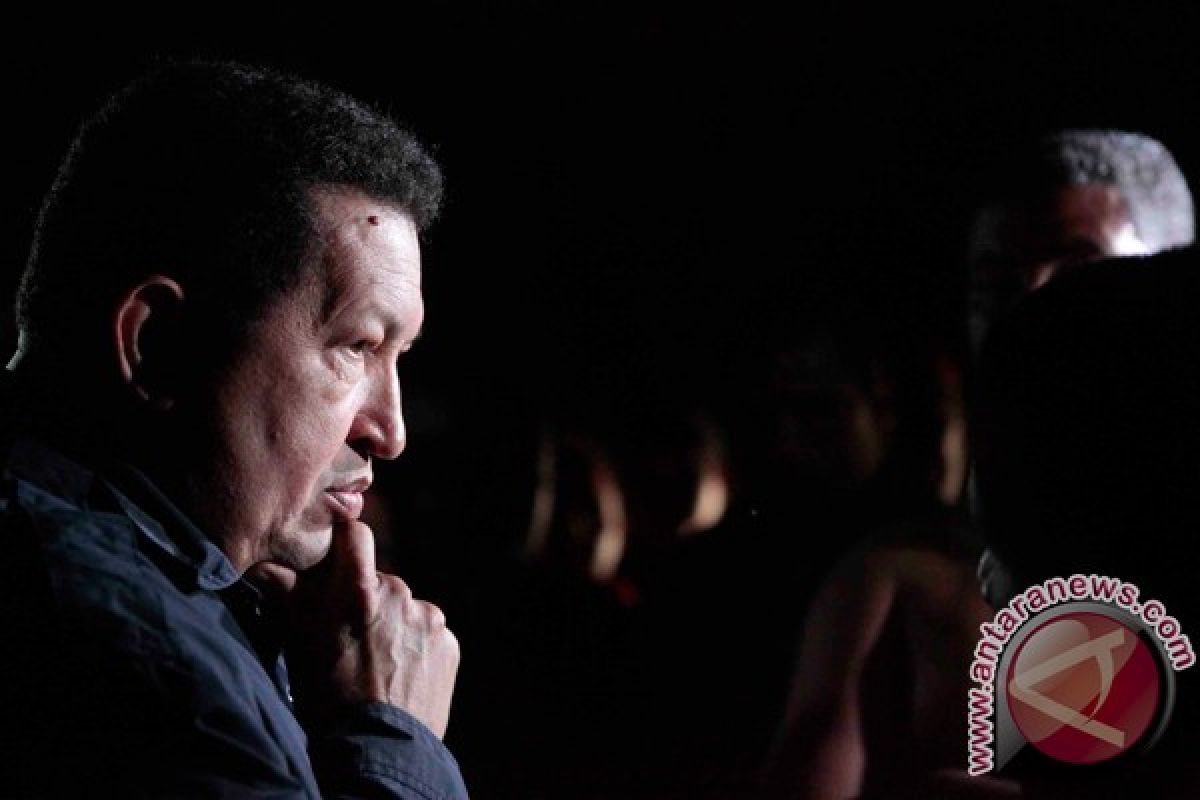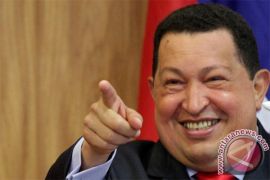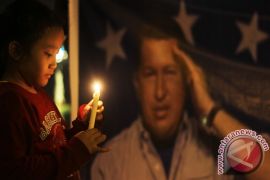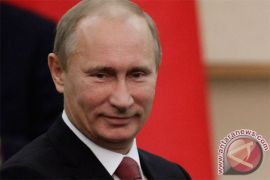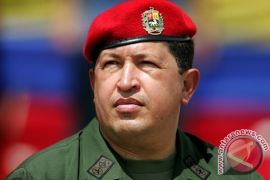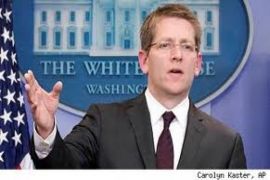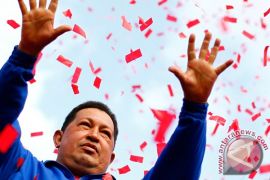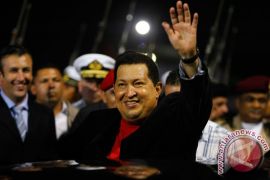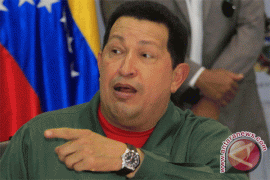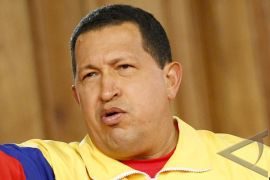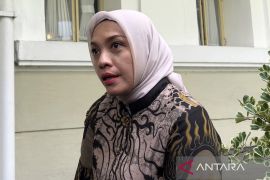"We rule out absolutely nothing."Caracas (ANTARA News/AFP) - A constitutional fight over ailing President Hugo Chavez`s status intensified Tuesday with the government planning a massive show of support in the streets on the day he is supposed to be sworn in to a new term.
Information Minister Ernesto Villegas said late Monday that Chavez`s medical condition has remained "stationary" since the latest complication from surgery was reported four days ago.
Chavez, who underwent his fourth round of cancer surgery in Havana nearly a month ago, is suffering suffering from a severe pulmonary infection that has resulted in a respiratory insufficiency.
The call for a rally January 10 outside the Miraflores presidential palace comes amid a stormy debate over whether Chavez and his current government can remain in office if he is too sick to take the oath of office.
The Catholic church waded into the controversy for the first time Monday, with a warning that it would be "morally unacceptable" to override the constitution and that Chavez`s prolonged absence had put the country`s stability at risk.
But the leftist government and the conservative opposition brandished conflicting interpretations of the constitution, with Chavez`s allies calling the president`s swearing-in a "formality" that can be fulfilled sometime after January 10.
"We rule out absolutely nothing," said National Assembly speaker Diosdado Cabello, when asked at a news conference if Chavez`s return in time for the inauguration had been ruled out.
"But we`re not going to get to the 10th and not know what we are going to do. We know what we`re going to do," he said.
Part of the plan is to hold a huge pro-Chavez rally, with the participation of as yet unidentified foreign leaders, in a reminder of the 55 percent support that won the leftist firebrand re-election to another six-year term October 7.
"All of Venezuela will come here in front of the Miraflores presidential palace, the people supporting our president -- the people supporting comandante Chavez -- in an overwhelming manner, the people in the street," said National Assembly speaker Diosdado Cabello.
The only foreign leader who has confirmed he will attend is Uruguay`s President Jose Mujica, who was scheduled to arrive Thursday. Argentina`s President Cristina Kirchner was planning a visit to Cuba the same day.
A key opposition leader, meanwhile, has called for street protests if the government pushes past January 10 without a swearing-in, raising the risks of confrontation.
"People should get ready to protest and rebel against what will be a failure to uphold the constitution," said Julio Borges, national coordinator of the opposition Justice First party.
He said the opposition will also go to "institutions, countries, embassies and organizations outside of the country to let them know that authorities are trying to twist the constitution due to an internal problem."
The government, however, gained support from Latin American heavyweight Brazil, which said a constitutional process was in place to assure continuity in the event Chavez is unable to be sworn in.
Marco Aurelio Garcia, a top advisor to Brazilian President Dilma Rousseff, met in Havana last week with the Venezuelan leaders and said he learned there was "constitutional cover" if Chavez fails to show in Caracas January 10.
He said Brazil was not worried that the country will be destabilized.
"There would be concern in the Brazilian government, in Mercosur, in Unasur, if there were a concrete process of instability in Venezuela, and that is not happening," he said. Mercosur and Unasur are regional groupings that Venezuela belongs to.
Garcia said the process involved setting a 90 day period, renewable for another 90 days, for the Venezuelan leader`s absence, after which a decision would be made on whether he is permanently incapacitated.
Under the constitution, new elections must be held within 30 days if the president dies or is permanently incapacitated either before he takes office or in the first four years of his six-year term.
The Venezuelan opposition argues that the constitution establishes January 10 as the end of the current presidential period, and a new one cannot begin until the president takes the oath of office.
It contends that a constitutional solution would be to declare Chavez "temporarily incapacitated," and to make the speaker of the National Assembly the interim president until Chavez is well enough to take the oath.
Throughout his illness, which was first detected in June 2011, the 58-year-old Chavez has refused to relinquish the powers of the presidency, even when leaving for Cuba to undergo his fourth and most difficult round of cancer surgery.
He has not been seen in public since, and the government disclosed last week that he had suffered complications after surgery in the form of a "severe pulmonary infection" that had resulted in a "respiratory infection."
(U.P012/M016)
Editor: Priyambodo RH
Copyright © ANTARA 2013
